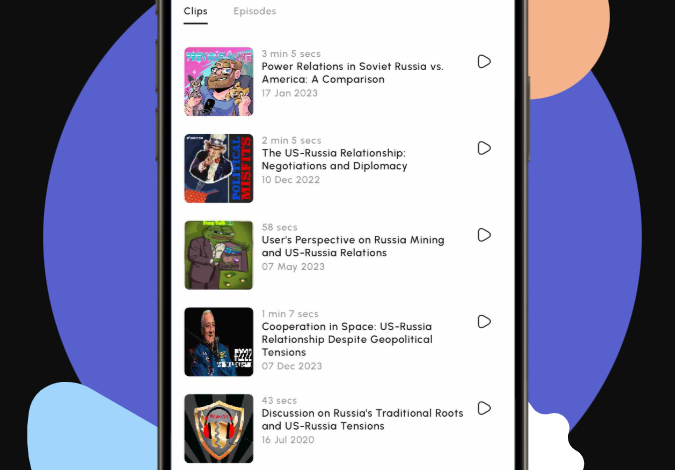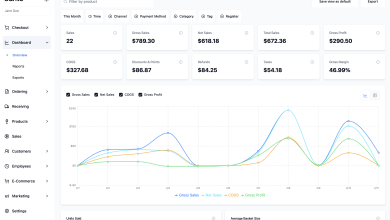
Since the mid-2000s, podcasts have exploded from a niche medium to a global phenomenon – with over 546 million listeners worldwide and millions of podcast episodes for listeners to sift through. The amount of podcast content can be overwhelming, and there’s a clear need for intelligent, personalized curation.
Emerging technologies like Podyssey’s AI-driven podcast search engine, are now stepping in to help users cut through the noise. These innovative tools have the ability to break up podcast content into smaller clips, focusing on individual topics being discussed within each episode. In turn, this makes the clips easier to search and allows users to quickly find the content that most interests them.
This technology is game changing for both podcasters and podcast listeners alike, as it better recommends and curates content that fits the listeners interests – turning the vast podcast universe from an intimidating ocean into a navigable, meaningful stream of information and entertainment.
A new era of podcast curation
Historically, traditional platforms have long relied on simplistic categorization, forcing content into boxes that fail to capture the nuanced theme of their show. Search functions and recommendations are powered by these categories, and while this is an effective way to catalog podcasts, it’s very limiting to the listener. Many podcasts fall into multiple different categories, and these vary based on guests and topics.
The new era of podcast curation is essentially becoming the Google of the podcast world by leveraging cutting-edge AI and natural language processing technologies, allowing listeners to find the content they are interested in, regardless of what category the podcast is labeled with.
“By understanding the listeners’ preferences in a much more direct way, Podyssey is able to recommend and curate content that is specific to the listeners’ interests. Over time, the platform gets better and better at identifying content that matches a listener’s needs,” said Ahmad Saleem, co-founder and CEO of Podyssey.
Podyssey’s powerful search engine assists with finding more relevant content, hidden deep within episodes, and provides more relevant recommendations based on the content engaged with. By understanding listener preferences, a dynamic, personalized recommendation ecosystem is opened. This represents a fundamental shift from static, category-based recommendations to an intelligent, content-driven discovery model.
Looking ahead
And there’s still tremendous potential for innovation when it comes to podcast curation. Saleem predicts that the industry will incorporate speaker recognition as another way to find curated content, and looks to incorporate these new features into Podyssey’s platform.
“In the short term we are looking into speaker recognition, which will allow users to find all appearances of particular individuals on any podcast that they may have been on. Thinking longer term, we are really looking into integrating video content, and also looking for more ways to enable creators to interact with their listeners.”
Like other industries leveraging artificial intelligence, Podyssey is demonstrating how technology can break down existing limitations and create more personalized, efficient user experiences. The platform can add thousands of podcast episodes weekly, uncovering smaller creators and niche content that might otherwise remain undiscovered.
Podyssey’s AI doesn’t aim to replace human curation but to augment and scale it. The platform can match the quality of human-curated recommendations while operating at a scale impossible through manual processes.
As the podcast ecosystem continues to evolve, platforms like Podyssey are not just changing how we find content—they’re reimagining the entire ecosystem. By removing traditional boundaries and leveraging advanced AI, they’re creating a more dynamic, accessible, and personalized listening experience. The message is clear: In the world of digital content, AI is not just a tool—it’s a transformative force capable of reimagining how we discover, consume, and interact with media.




